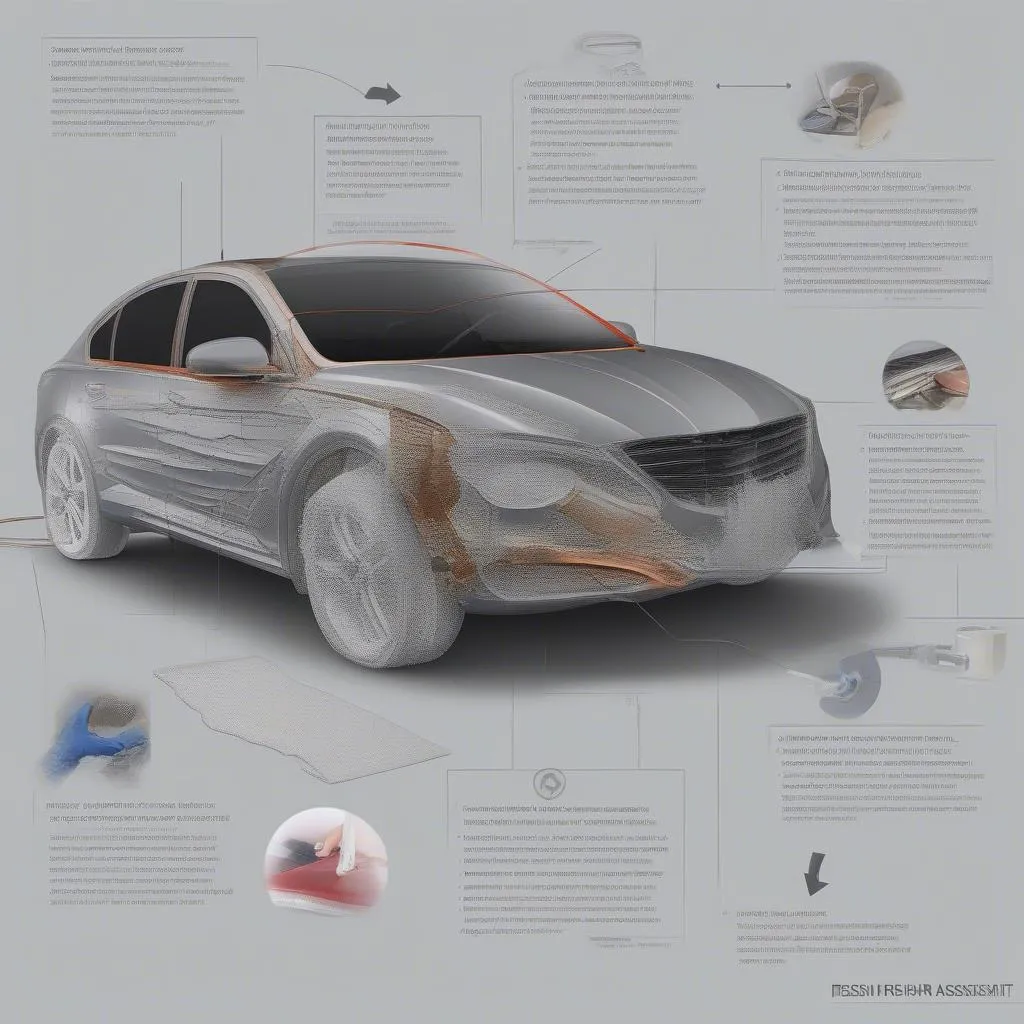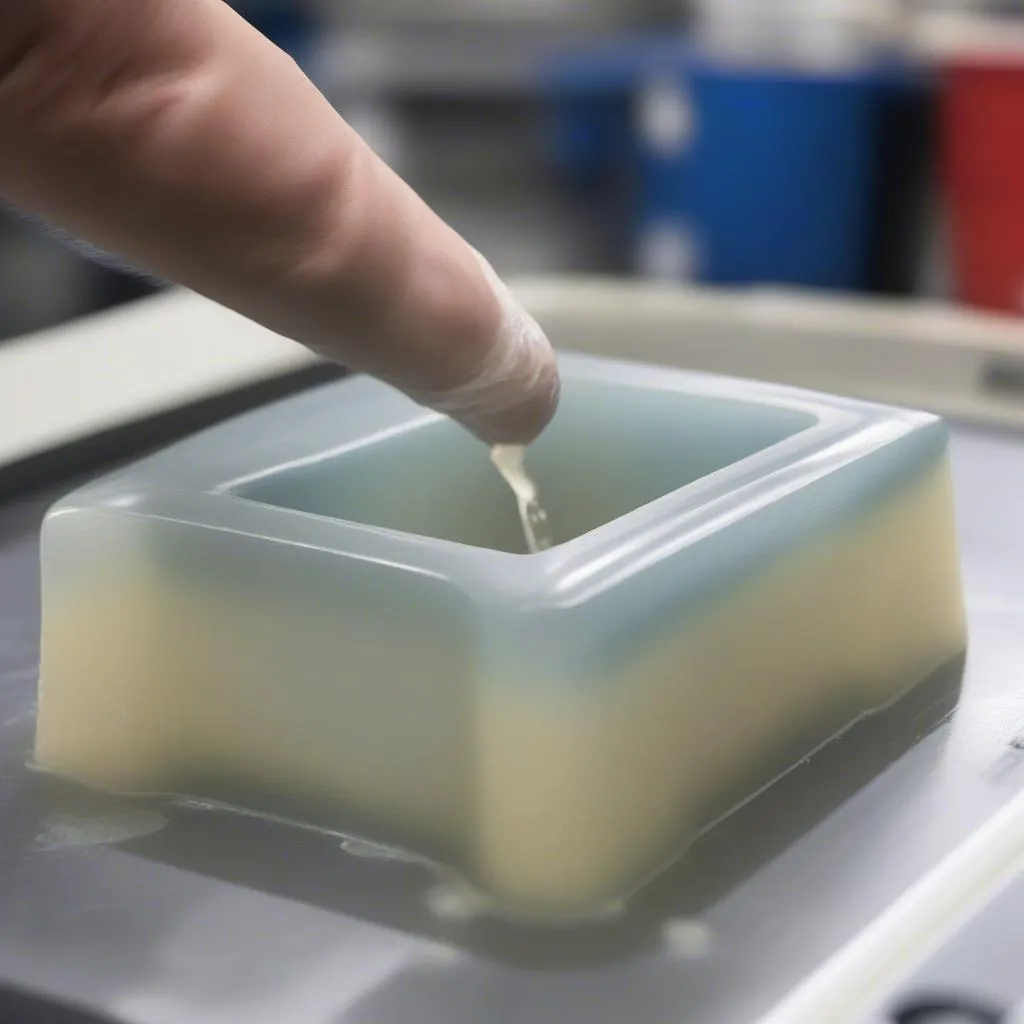Have you ever wondered how a car body gets its smooth, durable finish? The answer lies in the fascinating world of Resin Car Works. Imagine this: You’re driving down a sunny California highway, and a sleek, silver sports car zooms past, catching your eye with its gleaming paint job. That dazzling finish is the result of meticulous craftsmanship and the magic of resin. But what exactly is resin, and how does it transform a bare car body into a masterpiece?
Understanding Resin Car Works: A Journey into Automotive Aesthetics
What is Resin?
Resin is a naturally occurring, viscous substance often found in trees. In the context of automotive repair, we’re talking about synthetic resins – specifically, epoxy resin, which is a two-part liquid that mixes to form a hard, durable plastic-like material. This material has revolutionized the way car bodies are repaired and refinished.
Resin in Car Works: A Comprehensive Overview
Resin plays a vital role in various car works, including:
- Body Repair: If a car has been damaged in an accident, resin is used to fill in cracks, dents, and other imperfections. This creates a smooth, even surface that is ready for painting.
- Molding: Resin is used to create custom parts for cars, such as spoilers, side skirts, and even entire body panels. This process involves pouring resin into a mold, allowing it to harden, and then removing the part.
- Fiberglass Repair: If a car has fiberglass components, such as a hood or a trunk lid, resin is used to repair cracks and holes. This is done by applying resin to the damaged area, reinforcing it with fiberglass cloth, and then allowing it to cure.
- Paint Protection: Resin can also be used to create a protective coating over the car’s paint, making it more resistant to scratches, chips, and UV damage.
- Restoration: Resin is commonly used in classic car restorations to repair damaged body panels and create custom parts, ensuring the car’s original beauty is restored.
How Resin Works: A Chemical Transformation
Resin works by undergoing a chemical reaction known as “curing.” This involves mixing the resin with a hardener, which triggers a polymerization process. During this process, the resin molecules link together, forming a rigid, durable structure. The curing time can vary depending on the type of resin and the environmental conditions.
Benefits of Resin Car Works
- Durability: Resin creates a tough, resilient surface that can withstand the rigors of everyday driving.
- Flexibility: Resin is flexible enough to adapt to complex curves and shapes, making it ideal for car body repair and customization.
- Water Resistance: Resin is highly water-resistant, ensuring that repairs are protected from the elements.
- UV Resistance: Resin can protect against fading caused by ultraviolet radiation, preserving the car’s paint job for longer.
- Cost-Effectiveness: Resin repair and restoration are often more cost-effective than replacing damaged body panels.
Common Resin Car Works Applications:
- Porsche: The iconic Porsche 911 has a classic, elegant design. Resin is used to restore the classic body panels and repair any damage to this beloved sports car.
- Lamborghini: The sleek, angular lines of a Lamborghini require precise repair and restoration techniques. Resin plays a crucial role in preserving the unique character of this supercar.
- Mercedes-Benz: Known for their luxury and engineering prowess, Mercedes-Benz cars often require delicate and precise repair techniques. Resin is used to ensure that damaged body panels are restored to their pristine condition.
Resin Car Works: A Glimpse into the Future
The use of resin in car works continues to evolve. As the automotive industry embraces new technologies, we can expect to see more innovative applications of resin in the future.
 Resin car repair process visual – A step-by-step guide
Resin car repair process visual – A step-by-step guide
 Resin car works custom parts creation – A close-up view
Resin car works custom parts creation – A close-up view
Questions You Might Have About Resin Car Works
- What are some common resin car repair myths?
- How long does it take for resin to cure?
- What is the difference between resin and fiberglass?
- Where can I find a reputable resin car works specialist?
- Are there any environmental concerns associated with resin use?
Looking for More Information?
For a detailed guide on pinewood derby car building, check out this article: https://techcarusa.com/watermelon-pinewood-derby-car/.
Need help with your car’s electrical system? We offer expert diagnostics and repair services for European cars. Contact us today for a free consultation: +84767531508.
Final Thoughts
Resin car works is a testament to the creativity and innovation in the automotive world. From restoring classic cars to customizing modern vehicles, resin plays a crucial role in shaping the future of car repair and restoration. So next time you admire a gleaming car, remember the magic of resin and the skilled craftsmen who use it to create automotive masterpieces.